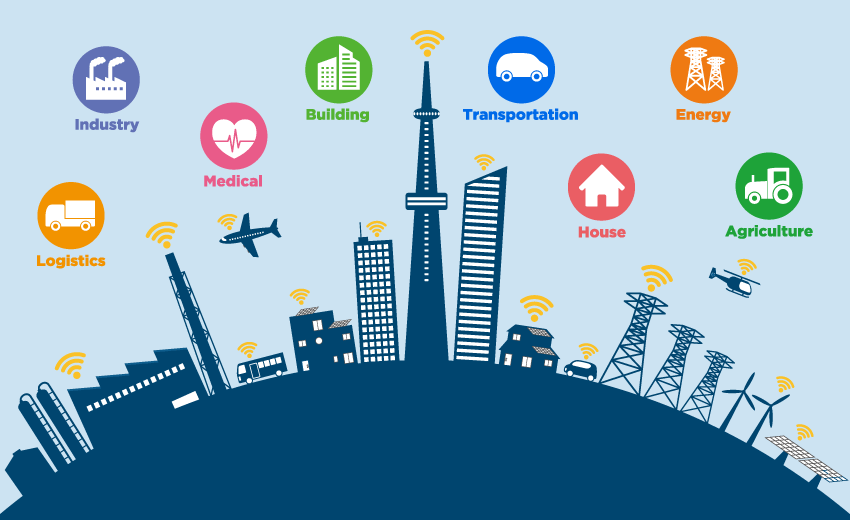The Role of Smart Data Management in Smart Cities
In today’s rapidly urbanizing world, smart cities rely on smart data management to optimize operations, enhance security, and improve the quality of life for citizens. As cities generate vast amounts of data from sensors, IoT devices, and connected systems, managing this information efficiently becomes essential. Without a structured approach, data silos, inefficiencies, and cybersecurity risks can hinder progress. This article explores why information management is crucial for smart cities’ success and how advanced data strategies empower urban innovation.
How Smart Data Management Transforms Smart Cities
Enhancing Urban Efficiency Through Centralized Data Systems
A well-structured smart data management system enables cities to consolidate and analyze information from multiple sources. By integrating data from traffic control systems, energy grids, security networks, and public services, urban authorities can make informed decisions in real time.
Key Benefits of Centralized Data Systems:
- Optimized Resource Allocation – Cities can predict peak energy usage and optimize electricity distribution.
- Improved Traffic Management – AI-powered analytics help reduce congestion by adjusting traffic signals dynamically.
- Faster Emergency Responses – Real-time data allows emergency services to locate incidents swiftly.
Enabling Data-Driven Governance and Decision-Making
Governments and municipal bodies must leverage smart data management to enhance decision-making processes. By utilizing predictive analytics, authorities can anticipate urban challenges and implement proactive measures.
Examples of Data-Driven Governance:
- Public Safety Enhancements – Surveillance and AI-driven monitoring improve law enforcement capabilities.
- Environmental Monitoring – IoT sensors detect air pollution levels, allowing authorities to enforce policies for cleaner air.
- Infrastructure Planning – Data analytics identify areas requiring road maintenance or water system upgrades.
The Challenges of Information Management in Smart Cities
Overcoming Data Silos and Fragmentation
One of the biggest obstacles in smart data management is the presence of isolated data systems. Different departments and agencies often store information separately, limiting collaboration and reducing overall efficiency.
Solutions to Address Data Silos:
- Unified Data Platforms – Implementing interoperable systems that facilitate cross-sector data sharing.
- Standardized Data Protocols – Ensuring that all urban data sources follow a common framework.
- Cloud-Based Infrastructure – Enabling remote access and real-time updates across departments.
Ensuring Data Privacy and Security
With the increasing digitization of urban services, cybersecurity concerns are more critical than ever. Protecting citizens’ sensitive information from breaches and cyber threats requires robust security measures.
Best Practices for Secure Smart Data Management:
- Encryption Protocols – Encrypting stored and transmitted data to prevent unauthorized access.
- AI-Based Threat Detection – Implementing machine learning algorithms to identify and mitigate cyber threats.
- Regulatory Compliance – Adhering to global data protection laws, such as GDPR and local cybersecurity frameworks.
Future Trends in Smart Data Management for Smart Cities
AI and Machine Learning for Predictive Analytics
Artificial intelligence (AI) and machine learning (ML) are revolutionizing smart data management by enabling predictive analytics. These technologies allow cities to anticipate infrastructure failures, optimize public transportation routes, and enhance waste management efficiency.
Blockchain for Transparent and Decentralized Data Handling
Blockchain technology is emerging as a game-changer in data integrity and security. By offering tamper-proof ledgers, blockchain ensures transparency in urban transactions, such as smart contracts for public services.
Edge Computing for Faster Data Processing
Traditional cloud computing solutions can sometimes lead to latency in processing urban data. Edge computing addresses this by processing data closer to the source, allowing for real-time analytics and immediate decision-making.
The Future of Smart Cities Depends on Smart Data
The success of smart cities hinges on the ability to manage, analyze, and protect urban data effectively. Smart data management ensures that cities operate efficiently, offer improved services, and create a safer environment for residents. As emerging technologies continue to evolve, integrating AI, blockchain, and edge computing will further enhance urban intelligence. By prioritizing a secure and interconnected data ecosystem, smart cities can thrive and set a new benchmark for sustainable urban living.



